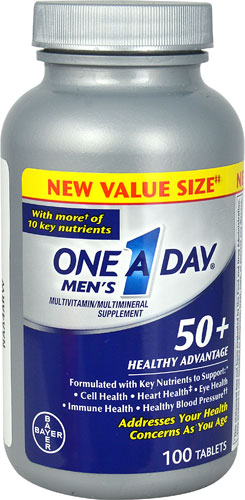For years, thanks to heavily marketed genetic tests from companies like AncestryDNA and 23andMe, we’ve been able to find out whether our ancestors were primarily from England or Egypt, or they were mostly from Spain or South Africa. Now, more and more of us are going beyond our heritage and taking genetic tests to learn about our health — whether we’re at greater risk for conditions like breast cancer and Alzheimer’s disease, for instance.
Experts caution, though, that one batch of genetic test results shouldn’t be your sole guide for figuring out how to prepare for a future that might include a potentially debilitating or deadly disorder. As with most healthcare matters, it’s just not that simple.
Certified genetic counselor Scott Weissman, founder of Chicago Genetic Consultants in Northbrook, Illinois, explains that genetic testing to gain insights into your health comes in three forms.
1. Direct-to-consumer tests
The chief example of direct-to-consumer tests is 23andMe, which sells both ancestry-only tests ($99 each) and ancestry-plus-health tests ($199). AncestryDNA, the main rival of 23andMe, doesn’t offer health-related tests.
The direct-to-consumer test from 23andMe can indicate genetic risks for conditions such as certain types of cancer, such as variations of breast and ovarian cancer; lung and liver disease; late-onset Alzheimer’s disease; Parkinson’s disease; and celiac disease. Additionally, it can zero in on whether someone is a carrier of genetic disorder like cystic fibrosis and sickle cell anemia but doesn’t show symptoms of it.
Unfortunately, direct-to-consumer tests do have shortcomings, according to Weissman. For instance, anyone can order a direct-to-consumer test; permission from a healthcare provider isn’t required.
Nonetheless, Weissman says the health-oriented information supplied by 23andMe is “pretty accurate.” However, while the 23andMe health test can signal a greater risk for breast, ovarian or prostate cancer in people of Ashkenazi Jewish descent, the U.S. Food and Drug Administration (FDA) instructs consumers and healthcare professionals not to use these test results to determine cancer treatments. Such decisions should be made after follow-up testing and genetic counseling, the FDA says.
Weissman advises consumers to “really take the time to read the fine print about what is in these tests before clicking ‘yes’ and buying a test.”
Weissman also urges caution in handling raw data that ancestry-test providers like AncestryDNA and 23andMe enable customers to download. This data can be uploaded to a third-party website and then interpreted through a healthcare lens, he says, but the results are “potentially unreliable” and could be filled with errors.
Before entrusting raw genetic data to a third-party site for healthcare purposes, Weissman recommends consulting with a genetics professional like a certified genetic counselor. That professional can address questions and concerns that a typical consumer — someone lacking expertise about genetics — might have before and after a third-party review, he says.
To find a certified genetic counselor in your area, visit aboutgeneticcounselors.com, a website operated by the National Society of Genetic Counselors.
2. Consumer-initiated tests
Unlike a direct-to-consumer test, a healthcare provider must sign off on a consumer-initiated (or consumer-directed) test, which supplies information about genetic risks associated with an array of disorders. Typically, a provider of a consumer-initiated test employs genetic counselors who can answer a consumer’s questions and help decipher test results.
These tests involve a general look at your genetic makeup known as genotyping. As explained by Helix, a provider of these tests, genotyping “is like reading a few scattered words on a page.” By contrast, the narrower type of tests — called gene sequencing — “reads whole sentences, paragraphs and chapters.”
Weissman suggests meeting with a genetic counselor before proceeding with a consumer-initiated test so that he or she can answer questions or allay concerns.
Helix and Color are among the major providers of these tests. As of October 2018, Helix’s healthcare tests were priced from $164.99 to $239.99, while Color’s tests normally sell for $249.
3. Gene-sequencing tests
Gene-sequencing tests are the Cadillac of genetic tests.
As opposed to direct-to-consumer and consumer-initiated tests, “highly accurate” gene-sequencing tests are ordered by a healthcare professional, according to Weissman. Through a thorough lab analysis of the gene-sequencing results, heightened risks of genetic disorders can be identified with “very high” certainty, he says.
One word of warning: These tests can cost $1,500 to $2,000 apiece, but they’re often covered by insurance, according to Weissman.
What’s the bottom line?
The American Medical Association (AMA), the largest U.S. organization for physicians, stresses that the results of genetic tests — no matter what kind they are — can be difficult to interpret and should be taken into context (such as family history and other health conditions).
“A positive result does not always indicate a clinical diagnosis. Instead, it may indicate an increased risk for developing a disease or condition,” the AMA says. “Similarly, a negative result is not indicative of the absence of disease risk.”
Women’s advocate Kaitlin Nordby, a hereditary cancer educator who is founder and CEO of Well Woman, believes genetic tests can be “incredibly helpful” when something can be done to either prevent a condition from occurring or reduce the risk. But in the case of a disease like Alzheimer’s, a test might detect a greater risk for it, yet there’s no known way to prevent or cure it, she cautions.
“If there is nothing you can do to prevent that outcome, it’s like finding out the date and time you are going to die. Is that useful?” Nordby says.
Saad Alam says he’s found genetic testing useful.
Alam, the 36-year-old founder and CEO of Prime, a healthcare brand that empowers men in their 30s and upward to combat the mental and physical challenges of aging, says he performed five at-home genetic tests to help him get a leg up on the aging process. He says the tests indicated, for instance, a vitamin D deficiency and an increased risk for osteoarthritis, and led to a plan to counteract them.
Such tests, however, are not the end-all and be-all regarding your health, Alam advises. The tests gave him “information that most physicians may not look into,” he says. “But I have to work with my physician to make good, sound decisions.”




